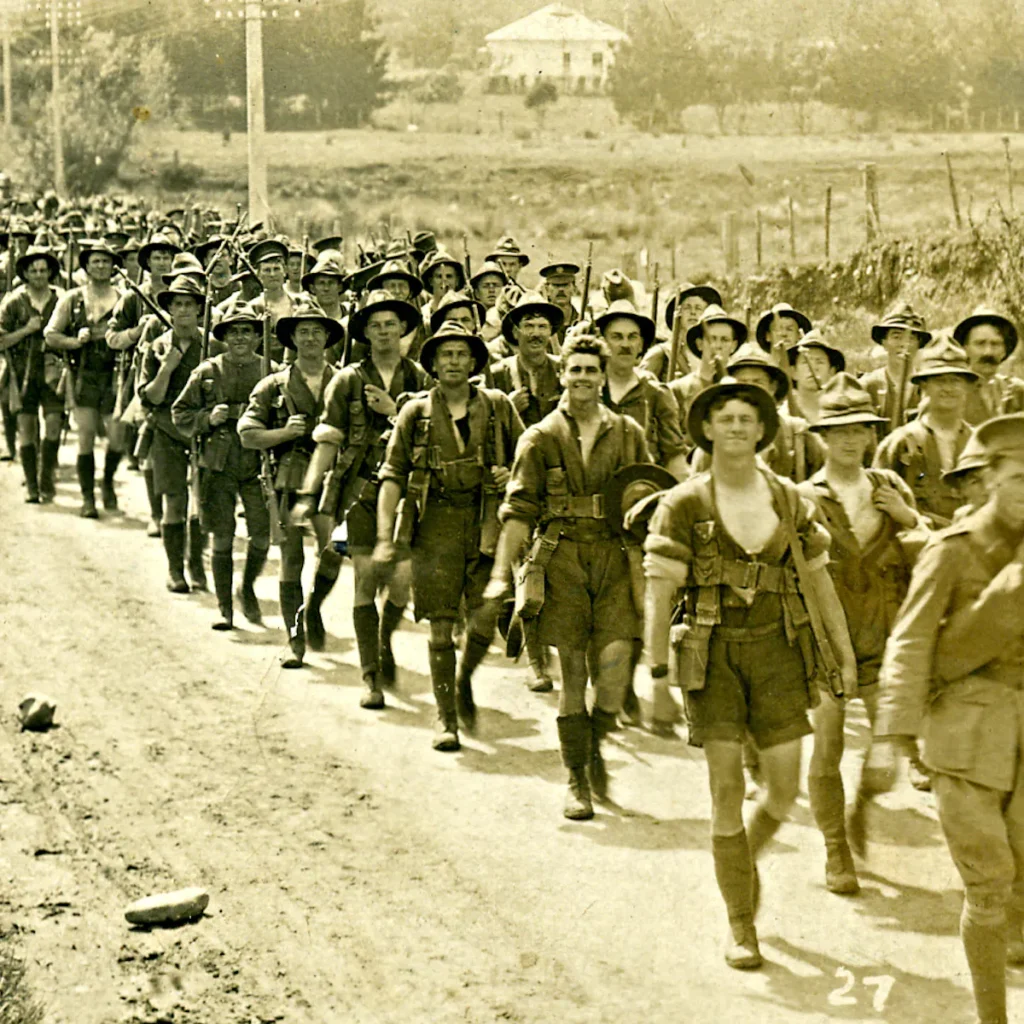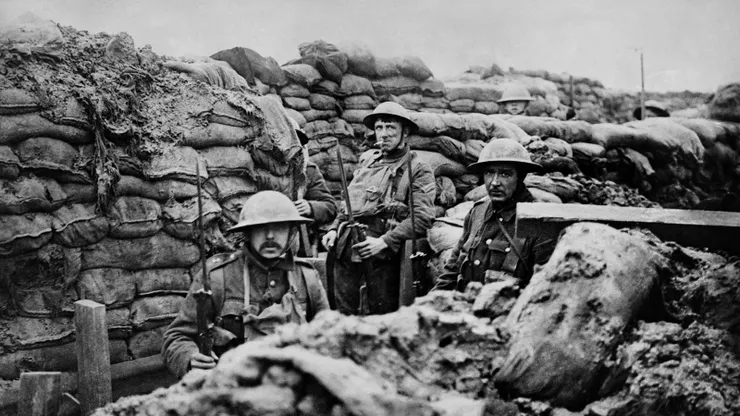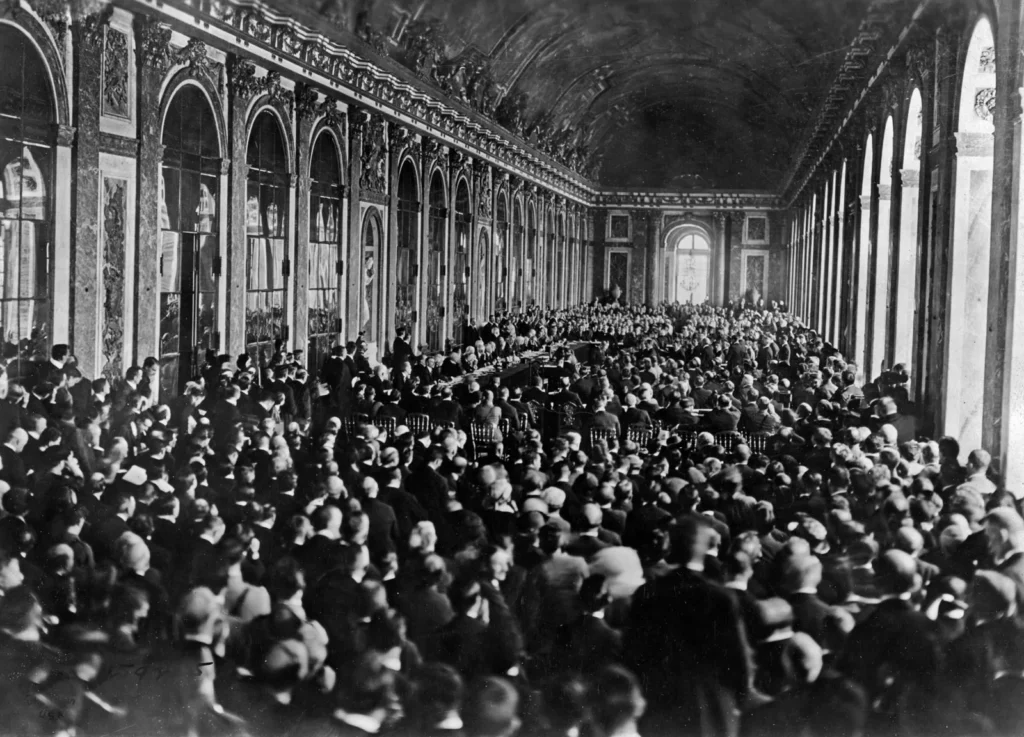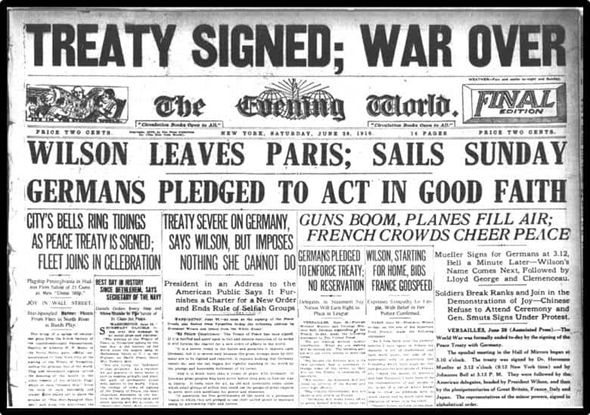The Treaty of Versailles was signed on June 28, 1919 and was a peace treaty that officially ended World War I between the Allied Powers and Germany. The treaty, which was signed at the Palace of Versailles near Paris, imposed severe penalties and reparations on Germany and aimed to prevent the country from becoming a military threat in the future.
The Treaty of Versailles marked the end of the war but also caused significant controversy and discontent. Many Germans felt humiliated by the harsh terms imposed on their country and believed that the treaty was unjust. This sense of resentment and anger helped to fuel the rise of National Socialism in Germany and ultimately led to World War II.
An Overview of World War 1
World War 1, also known as the Great War, was a global conflict that lasted from 1914 to 1918 and was one of the deadliest wars in human history. It involved millions of soldiers from various nations and was fought on multiple fronts, including Europe, Africa, and Asia. The war was primarily fought between the Allied Powers, consisting of France, the United Kingdom, Russia and later the United States, and the Central Powers, consisting of Germany, Austria-Hungary, the Ottoman Empire, and Bulgaria. The spark for the war was the assassination of Archduke Franz Ferdinand of Austria-Hungary by a Serbian nationalist on June 28, 1914.
The Great War was characterized by the introduction and widespread use of new military technologies, such as poison gas and tanks. It also saw the mobilization of entire populations, with women entering the workforce and taking on new roles in support of the war effort. The war had a profound impact on the world, leading to the collapse of empires, the creation of new nations, and the loss of millions of lives.
The Allies emerged victorious and imposed severe penalties on the Central Powers through the Treaty of Versailles. The treaty was controversial and is widely seen as a major contributor to the start of World War II, which took place just two decades later. The impact of World War 1 extended beyond political and military spheres, as it had a significant impact on art, literature, and cultural expressions. Many writers and artists responded to the trauma and upheaval of the conflict, creating works that reflected the tragedy and horror of the war.

In conclusion, World War 1 was a catastrophic event that changed the course of history and had far-reaching effects on the world. It remains one of the deadliest and most devastating wars in human history, and its impact is still felt today.
The Treaty of Versailles
The Treaty of Versailles was a peace treaty signed on June 28, 1919, between the victorious Allied Powers and Germany, marking the end of World War 1. The treaty was signed at the Palace of Versailles, near Paris, and was the result of long and complex negotiations among the Allied Powers, who sought to establish a lasting peace in the aftermath of the Great War.
The treaty was made up of several parts, including the Covenant of the League of Nations, which established the League of Nations as an international organization for promoting peace and cooperation. The treaty also imposed severe penalties on Germany, including the disarmament of its military and the transfer of significant territories to other countries. Germany was also required to pay large reparations to the Allied Powers, a move that was widely criticized and is seen as one of the key contributors to the start of World War II.
The Treaty of Versailles was controversial from the start and faced opposition from many quarters. In Germany, the treaty was widely seen as unjust and imposed too harsh penalties on the country. The treaty was also criticized by some members of the Allied Powers, who felt that the harsh penalties imposed on Germany were not in line with the principles of the League of Nations.
Despite these criticisms, the Treaty of Versailles was ratified by the German government on August 10, 1919. The treaty remained in force until April 18, 1940, when Germany, under the leadership of Adolf Hitler, renounced its obligations under the treaty and began a campaign of territorial expansion that would eventually lead to the outbreak of World War II.
In conclusion, the Treaty of Versailles was a complex and controversial document that marked the end of World War 1. The treaty imposed severe penalties on Germany and established the League of Nations, but its provisions were widely criticized and are seen as a major contributor to the start of World War II. Despite its many flaws and limitations, the Treaty of Versailles remains an important moment in world history, marking the end of one of the deadliest and most devastating wars in human history.
Why was the Treaty of Versailles so Important?

The Treaty of Versailles was an important and notable treaty for several reasons:
- Marking the end of World War 1: The Treaty of Versailles marked the formal end of World War 1, one of the deadliest and most devastating wars in human history. The treaty was a significant milestone in the efforts to bring lasting peace to Europe after the conflict.
- Establishing the League of Nations: The Treaty of Versailles established the League of Nations, an international organization designed to promote peace and cooperation among nations. The League was seen as an important step forward in the effort to prevent future wars and maintain global peace.
- Imposing penalties on Germany: The treaty imposed severe penalties on Germany, including the disarmament of its military and the transfer of significant territories to other countries. The penalties imposed on Germany were designed to prevent the country from becoming a military threat to Europe in the future.
- Setting the stage for World War II: The harsh penalties imposed on Germany by the Treaty of Versailles are widely seen as a major contributor to the start of World War II. The treaty’s provisions left Germany embittered and resentful, setting the stage for the rise of Adolf Hitler and the eventual outbreak of another world war.
- Historical significance: The Treaty of Versailles is widely regarded as a significant moment in world history, marking the end of World War 1 and the beginning of a new era of international relations. The treaty remains an important reference point for historians and students of international relations, serving as a testament to the complexities and challenges of negotiating peace after a major conflict.
In conclusion, the Treaty of Versailles was an important and notable treaty that marked the end of World War 1, established the League of Nations, imposed severe penalties on Germany, and had far-reaching consequences for the world. The treaty remains an important historical reference point and a testament to the complexities and challenges of negotiating peace after a major conflict.
Aftermath
The aftermath of the Treaty of Versailles had far-reaching consequences for the world. Some of the key effects of the treaty include:

- Economic hardship in Germany: The treaty imposed severe economic penalties on Germany, including the payment of large reparations, which contributed to economic hardship and instability in the country.
- Political instability: The treaty’s harsh penalties and the economic hardship they imposed on Germany contributed to political instability in the country, leading to the rise of extremist political movements, such as the Nazi Party.
- Controversy and resentment: The treaty was widely criticized and resented by many Germans, who felt that the penalties imposed on their country were unjust and overly harsh. This resentment contributed to the rise of extremist political movements and ultimately helped set the stage for World War II.
- The rise of Hitler: The resentment and anger generated by the Treaty of Versailles contributed to the rise of Adolf Hitler and the Nazi Party in Germany. Hitler and the Nazis used the treaty as a rallying cry, blaming the harsh penalties imposed on Germany for the country’s economic hardship and political instability.
- Failure of the League of Nations: The League of Nations, established by the Treaty of Versailles, ultimately proved to be ineffective in preventing the outbreak of World War II. The league was unable to enforce its decisions or prevent aggressive actions by countries like Germany and Japan, leading to its eventual decline and eventual replacement by the United Nations.
In conclusion, the aftermath of the Treaty of Versailles had far-reaching consequences for the world, including economic hardship in Germany, political instability, controversy and resentment, the rise of Hitler and the failure of the League of Nations. The treaty remains an important reference point for students of history and international relations, serving as a testament to the complexities and challenges of negotiating peace after a major conflict.
Conclusion
The Treaty of Versailles remains one of the most significant and controversial events of the 20th century. It was signed on June 28, 1919, after the end of World War I, and was intended to bring peace and stability to Europe. The treaty imposed severe penalties on Germany, including the payment of large reparations and territorial losses, which helped lay the groundwork for political and economic instability in the country.
The treaty’s impact on Germany was profound, and its harsh penalties contributed to the rise of extremist political movements, such as the Nazi Party. The treaty’s provisions, including the establishment of the League of Nations, proved to be ineffective in preventing the outbreak of World War II. The League of Nations failed to enforce its decisions or prevent aggressive actions by countries like Germany and Japan, leading to its eventual decline and eventual replacement by the United Nations.
Despite its controversial nature, the Treaty of Versailles remains an important reference point for students of history and international relations. It serves as a testament to the complexities and challenges of negotiating peace after a major conflict and highlights the importance of international cooperation and diplomacy in preventing future conflicts.

In conclusion, the Treaty of Versailles had a profound and lasting impact on the world, shaping the course of history and leaving a legacy that continues to shape international relations to this day. Its legacy serves as a reminder of the importance of international cooperation and diplomacy, and of the need to strive for a just and equitable peace after conflict.

